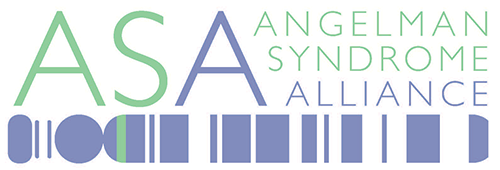ASA Grant 2021 Winners
Dr. Ilaria Tonazzini & Dr. Laura Baroncelli, Cnr Nano, Pisa Italy with "Innovative brain-targeting nano-tools and imaging methods for therapeutic development in Angelman Syndrome (InnovAS)"
The goal of the InnovAS project is to improve future therapeutic pipelines for Angelman Syndrome (AS) by;
- Working on a less invasive method to deliver antisense oligonucleotides (ASOs) to the brain, compared to intrathecal injections. The proposed brain-delivery strategy for ASOs targeting Ube3a, will be based on biocompatible nanoparticles that can be delivered non-invasively via intranasal administration.
- Assess non-invasive imaging methods as an unbiased biomarker for monitoring brain function in AS.
Dr. Simão da Rocha & Dr. Evguenia Bekman, University of Lisboa with "Stem cell toolkit for modelling cerebellar dysfunction in Angelman Syndrome"
This research project will investigate the hypothesis that cerebellar dysfunction significantly influences the symptoms of AS, particularly ataxia. In a stem cell-based approach, cerebellar organoids will be generated using novel induced pluripotent stem cells (iPSCs) from patients and genetically matched controls. These "cerebellum-in-a-dish" models will help future drug discovery efforts to improve the lives of patients with Angelman syndrome.
ASA Grant 2019 Winners
Dr. Ype Elgersma postulates that UBE3A plays a major role in the regulation of gene expression and sets out to identify respective genes. Department of Neuroscience – ERASMUS MC
Dr. Ben Philpot finetunes his last discovery by looking at quantifying sleep spindles from overnight EEGs as an Angelman syndrome biomarker. Associate Director of the UNC Neuroscience Center – UNC-Chapel Hill
Dr. Ugo Mayor has a daring and novel approach to identify and validate the substrates and cofactors (including DUB enzymes) of UBE3A and to test the viability of targeting DUB enzymes as a therapeutic strategy for AS. That intrigued both scientific board as well as the international alliance of parent organizations (Angelman Syndrome Alliance – ASA). Department of Biochemistry @ University of the Basque Country UPV/EHU
ASA Grant 2016 Winners
Silvia Russo with "Potential therapeutic approach for synaptic deficit in Angelman syndrome: the JNK inhibitor peptide"
Recent studies have demonstrated that neurons of patients with Angelman syndrome do not work well. AS neurons show defects (deficit at the synapses) that do not allow them to communicate each other and this is at the basis of cognitive deficit in patients. In neurons of Angelman patients, special structures, called synapses, have an alterated shape and work bad. The synapses are crucial for learning, memory and cognitive functions. We want to study the mechanisms which cause this alterations in Angelman animal (mice) and human models . Partner Russo is preparing human models from patients’ blood which we will transform in stem cells and then differentiate in neurons. In particular the project is focused on a specific class of molecules, JNKs proteins which play an important role in regulate neuronal functions. Recently the partner Borsello has achieved experimental evidence on the therapeutic action of the D-JNKI1, a JNK-specific inhibitor peptide. She has preliminary data that after the treatment, synaptic alterations in neurons of models mice with Rett syndrome consistently ameliorate. It is a relevant finding considering the strong symptomatic overlap of Rett syndrome (RTT) with AS. Importantly the drug has already passed in clinical trials phase II and III for the cure of neurodegenerative diseases (ischemia)and apparently it is not tossic. The aim of this proposal is to investigate the involvement of JNK protein in the Angelman syndrome and to experiment the therapeutic effect of the D-JNKI1 peptide. and
Ben Philpot with "Quantifying EEG abnormalities and identifying biomarkers in Angelman Syndrome"
Epilepsy is common both in individuals with Angelman syndrome (~90%), and neural signatures underlying epilepsy can be measured non-invasively using electroencephalography (EEG). AS patients have characteristic EEG patterns that have been described qualitatively by clinicians but not quantified rigorously using analytical methods. There is an unmet need to quantify EEG patterns in individuals with AS, and to gain insights into the circuit-basis for these abnormalities through parallel studies in AS model mice. We hypothesize that parallel studies of human and mouse EEG in Angelman syndrome using quantitative methods will dually provide clinical biomarkers and mechanistic insight. In collaboration with the two dedicated Angelman syndrome clinics in the United States, we aim to facilitate AS clinical trials by providing objective, unbiased biomarkers
ASA Grant 2014 Winners
Geeske M. van Woerden - In vivocharacterization of E6AP interacting proteins
Erasmus University Rotterdam
Ben Distel - Elucidating the molecular mechanisms underlying E6AP function in the brain
Department of Neuroscience – ERASMUS MC






